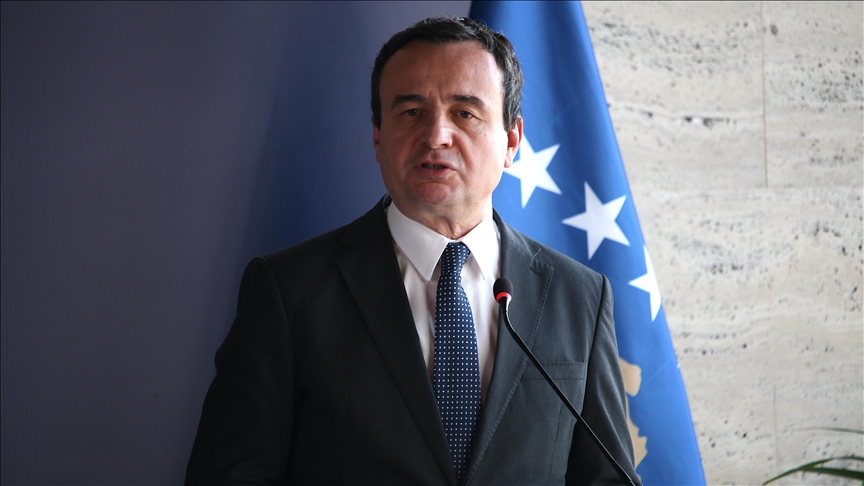Albin Kurti refuses to drop divisive speaker candidate despite continuing parliament deadlocked

Three months after Kosovo’s national elections, caretaker Prime Minister Albin Kurti reaffirmed Saturday that his party, Vetëvendosje, will not propose a new candidate for speaker of parliament, despite lacking the votes to install its nominee, Albulena Haxhiu. Speaking at a meeting of the party’s General Council, Kurti said forming the parliament is a joint responsibility of all elected parties.
Why is this important: Kosovo has failed to constitute a functioning parliament in thirteen separate sessions since the February 9 elections, leaving the country in a prolonged political vacuum. Kurti’s insistence on maintaining Haxhiu as his party’s only candidate for speaker has drawn sharp criticism from opposition parties, who view her as too divisive. The impasse underscores deeper institutional challenges and raises concerns about Kosovo’s democratic maturity.
Context: Vetëvendosje won 48 seats—13 short of the 61 needed for a governing majority. Despite repeated efforts, Haxhiu has failed to secure the necessary votes, obtaining no more than 57 in six previous sessions. Kurti has criticized the opposition for refusing to take part in votes or propose alternatives, saying, “We haven’t blocked the process. We proposed a candidate and we voted for her. It’s those who voted against or abstained who are blocking.”
The Democratic League of Kosovo (LDK), Democratic Party of Kosovo (PDK), and Alliance for the Future of Kosovo (AAK) have all refused to support Haxhiu. LDK has instead proposed a transitional unity government to serve until a new president is elected in 2026—a proposal Kurti firmly rejects.
What else: Speaking to Radio Free Europe, political analyst Gëzim Visoka described the crisis as a test of Kosovo’s ability to function independently, without international supervision. He warned that the prolonged deadlock is damaging the country’s democratic image. Kurti, however, downplayed such concerns, claiming that Kosovo is not facing a political or institutional crisis, but a “constitutional vacuum.”
He also responded to a recent press freedom report by Reporters Without Borders, which ranked Kosovo 99th globally—its worst ranking in 15 years and a sharp decline from the previous year. Kurti dismissed the report’s findings, blaming media owners and a lack of professionalism rather than government pressure. “In Kosovo, the media are free. The responsibility lies with them to reform and improve,” he said.
What’s next: With no agreement in sight and the next parliamentary session scheduled for Sunday, Kosovo’s political future remains uncertain. Kurti’s position appears entrenched, while opposition parties remain unwilling to support his candidate or join a coalition. The crisis is expected to deepen unless a compromise is found soon.


